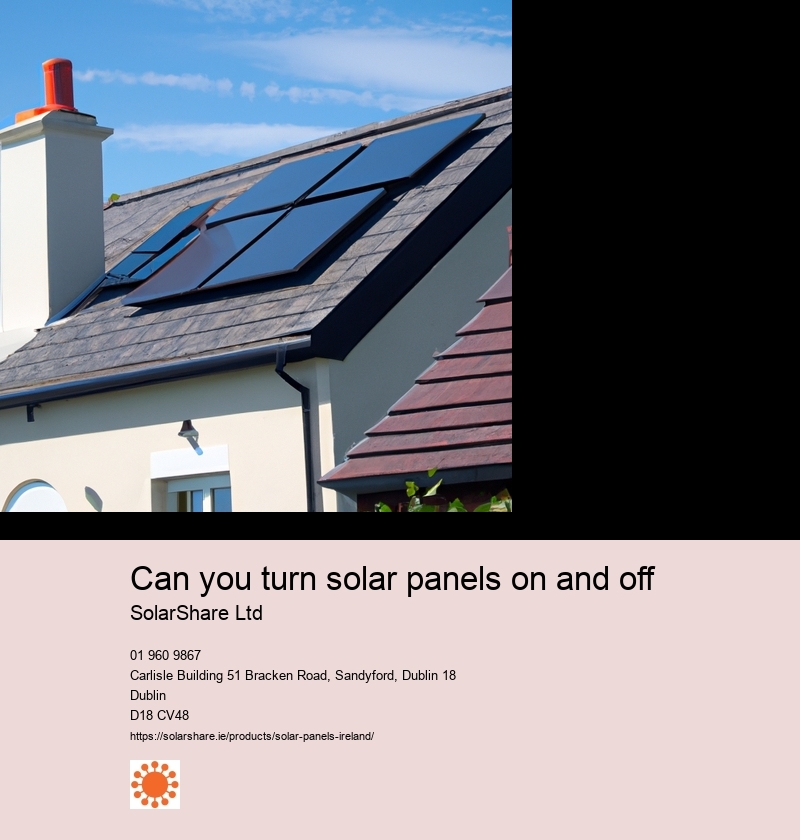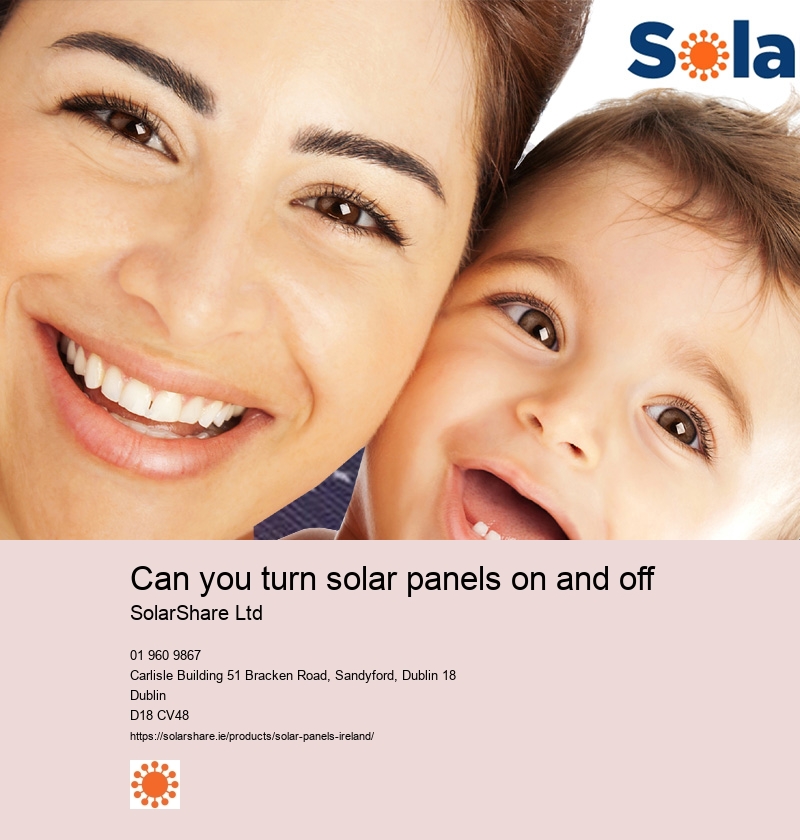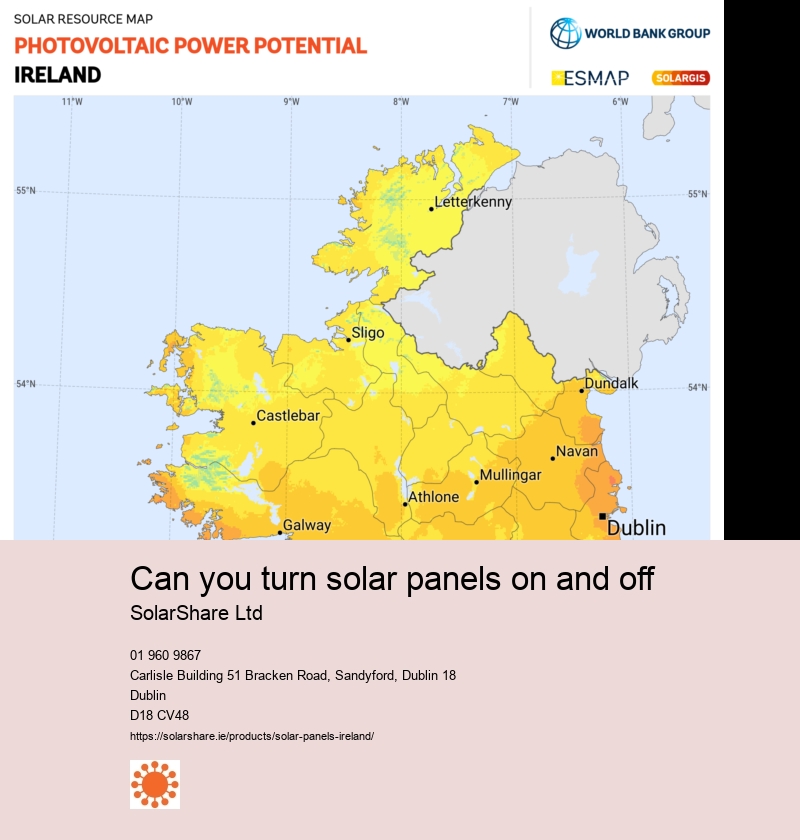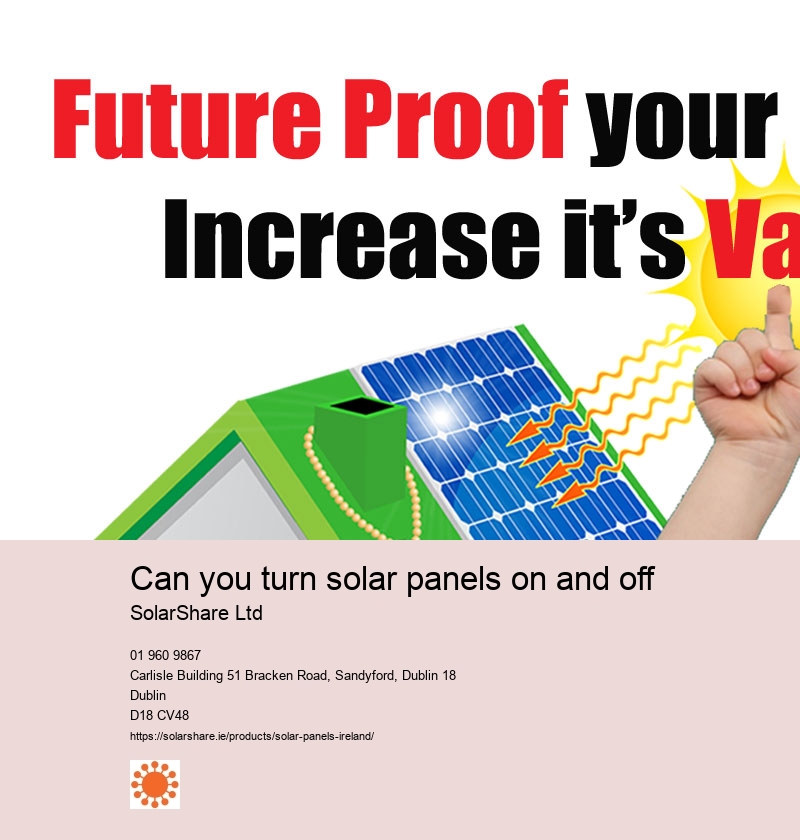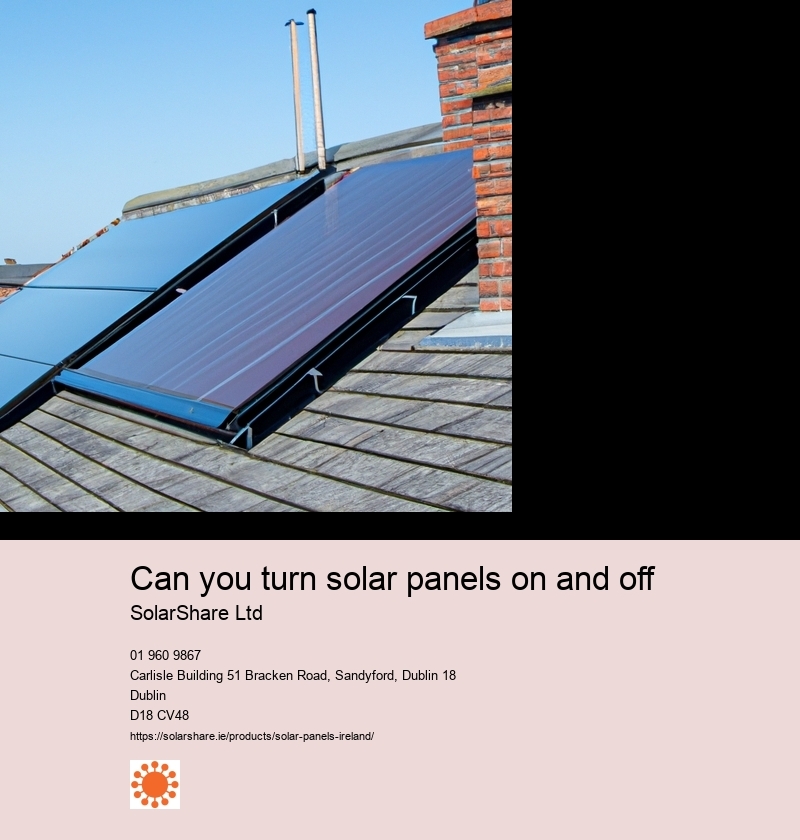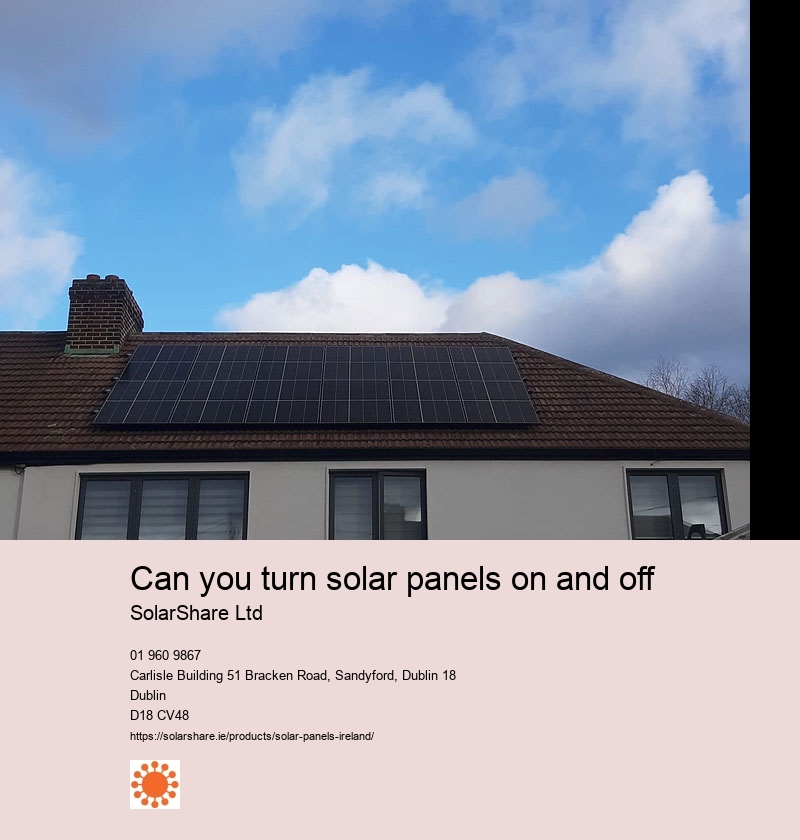Can you turn solar panels on and off
solar energy installers near me
SEAI can provide grants to help with the costs (subjected to meeting the eligibility requirements).
After all documents are uploaded, your BER certification will be issued.
Solar Share is pleased to offer a rate of 21c per kWh. We estimate that this payment will range between €50-€300 per year, depending on the size and type of your microgeneration system (a typical installa-tion of 10 panels would be about €150 per year).
